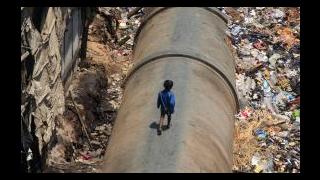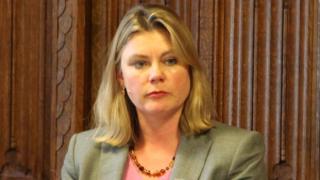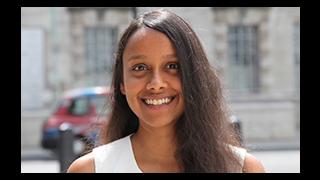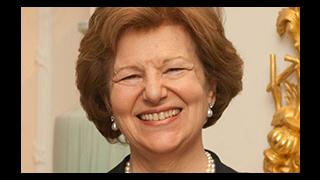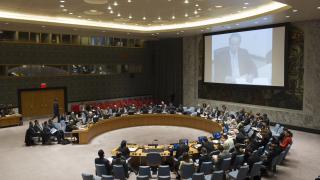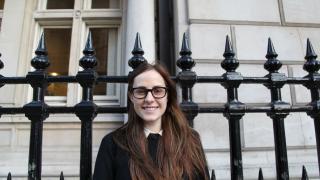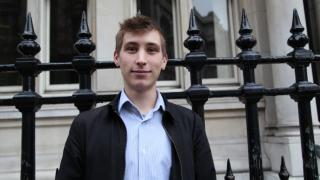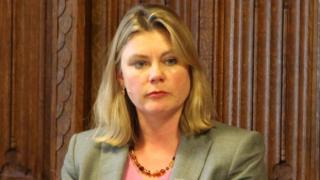
Almost 15 years ago, the international community came together to agree some simple, powerful objectives. No one should live on under $1.25 a day. Denying girls an education isn’t acceptable. The terrible scale of deaths from malaria and HIV/AIDS must be addressed. These were things we could agree to tackle together, and the eight Millennium Development Goals (MDGs) were born.
These goals drove over a decade of remarkable progress. Today the international community faces a renewed test. The end date for the MDGs is 2015, by which time we will judge huge progress on the commitments we made in the Millennium Declaration. I’m really proud of the contribution the British government is making, first and foremost through dedicating 0.7 per cent of our GNI to overseas development assistance, and also with our development programmes all over the world. For example, the UK has helped to eradicate smallpox and reduce polio cases from 350,000 a year in 1988 to just 223 last year. This is a huge achievement.
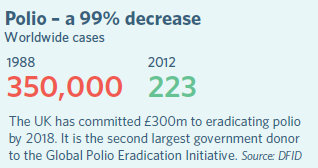 To keep building on this progress after 2015 means asking: what comes next?
To keep building on this progress after 2015 means asking: what comes next?
The international community now has to agree which challenges are the most important, most transformational in tackling extreme poverty and therefore deserve our combined effort. We have to decide new goals, new targets, and new ways of working together in global partnership.
With one in eight people still hungry, one in three women beaten or sexually abused in her lifetime, and four billion people lacking access to fair and functioning justice systems, it is simply not an option to fail to agree a new development framework. Nor is agreeing lowest common denominator goals on easy or less contentious topics, rather than tackling the issues that really make a difference. Bringing the international community together to one view on development will be tough, but it is a test we must meet.
Tackling the challenges that matter
Our starting point should be looking at what the Millennium Development Goals didn’t tackle, addressing the issues most important to people living in poverty and how the world has changed since, with fresh debates on sustainability. The issues that I heard raised time and again are those of violence and insecurity, lack of voice, poor governance, human rights violations, and people’s drive for jobs and employment.
The rule of law, safety, having a say in political processes, freedom from violence and corruption – these issues are often called enablers of development. And it’s true that without them, development is far harder to make happen. We can see this in the fact that fragile and conflict-affected countries such as Afghanistan, the Democratic Republic of the Congo, Sudan and South Sudan are the furthest off track from achieving the MDGs.
But when we ask poor people themselves what they value most it’s a job, it’s knowing that their families are safe in their own homes, that their children can get to school in safety, that they have a voice in political processes, that their governments listen, that they won’t be asked for bribes by local officials and police. These messages have rung out loud and clear from projects like MYWorld and Participate that have been gathering views from around the world on what the post-2015 development framework should look like. Clearly, freedom from violence and from corruption, transparent government, accountable public services, and access to justice are vitally important in their own right as well as important enablers. These are the things that those in poverty really care about.
The UK Prime Minister has called these issues the “golden thread” of development – the conditions that enable open economies and open societies to thrive. The crucial building blocks of accountable and transparent governments, the absence of conflict and corruption, and the presence of rights and freedoms build the platform for the eradication of poverty.
This was at the heart of the Millennium Declaration. In 2000, we declared that “we are determined to establish a just and lasting peace all over the world” and resolved to give everyone a life free from “the fear of violence, oppression or injustice”. Likewise, the importance of peace for sustainable development was underlined at the Rio+20 conference in 2012, when we reaffirmed “the importance of freedom, peace and security” in an outcome document entitled ‘The Future We Want’. The time is now ripe to take the next big step with the post-2015 framework to translate these ambitions into a reality for people in poverty the world over.
Goals and indicators
Some have argued that these vitally important issues are not measurable, and that we cannot develop concrete indicators by which to track our progress.
However, the UN High-Level Panel on the Post- 2015 Development Agenda, which the Prime Minister co-chaired alongside President Sirleaf of Liberia and President Yudhoyono of Indonesia, has demonstrated that we can form clear, measurable goals, targets and indicators with which to measure progress and hold ourselves to account.
In its recent bold report, the Panel recommended 12 goals; two of which were “ensure good governance and effective institutions” and “ensure stable and peaceful societies”. With targets on reducing violent deaths, eliminating violence against children, building accessible and independent justice institutions, stemming the stressors that lead to conflict, and enhancing security forces, police and judiciary, the Panel put paid to the argument that these issues cannot be measured. We know that these issues are measurable, and can be tracked and followed just as today we track how many kids attend school and how many people live on under $1.25 a day.
Girls and women
I am also personally committed to securing a strong focus on gender equality in the new development framework. Violence against girls and women is a global pandemic, with one in three girls and women in the developing world beaten or sexually abused in her lifetime. And while women perform 66 per cent of the world’s work, they earn only 10 per cent of the income. These statistics are stark reminders of the extent to which girls and women are locked out of development. I believe that only if we address issues of voice, choice and control for girls and women in the post-2015 framework will it have the potential to end poverty in our lifetime.
The High-Level Panel set a high bar of ambition for girls and women, recommending targets on child marriage, violence against women, and equal rights to open bank accounts and own property. I will be working hard with partners around the world to secure a similarly strong message in the final development framework agreed for 2015 onwards.
Our highest common ambition
In shaping the new development framework, we have a serious responsibility – to stretch for our highest common ambition, rather than the lowest common denominator. The High-Level Panel showed the way in this approach. The question is whether UN member states can come together again and address the difficult challenges of development. It can be done, it must be done, and the UK will play its part.
Justine Greening is UK Secretary of State for International Development. This article appears as a foreword to UNA-UK’s new publication, Global development goals: Leaving no one behind.




